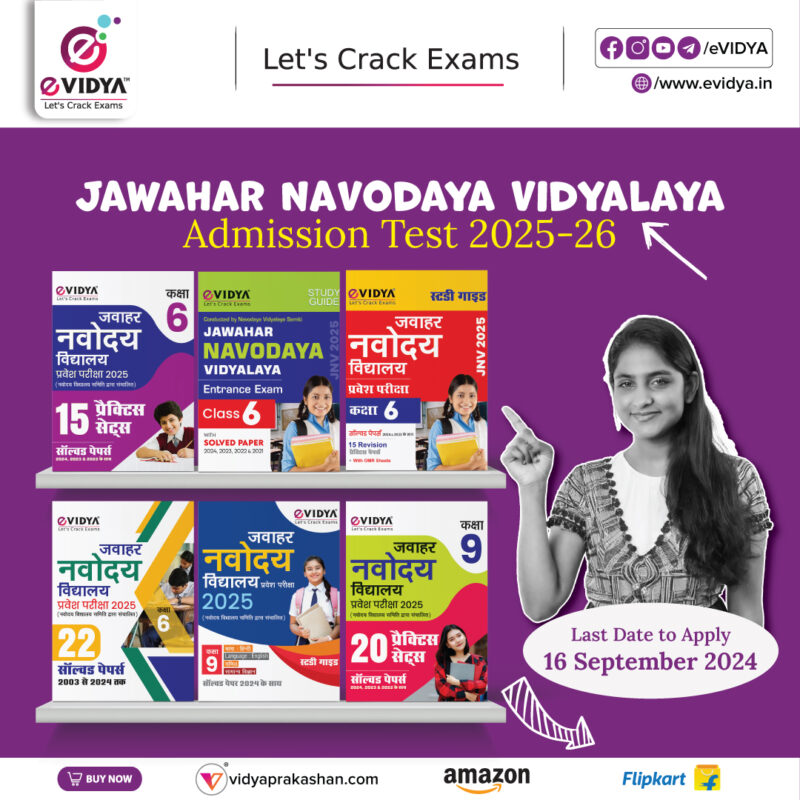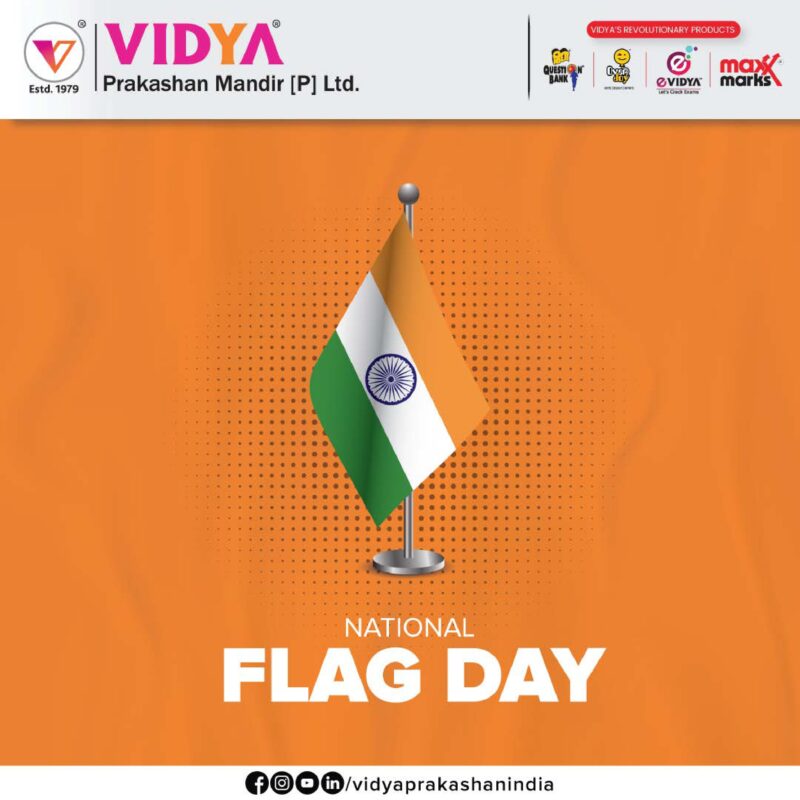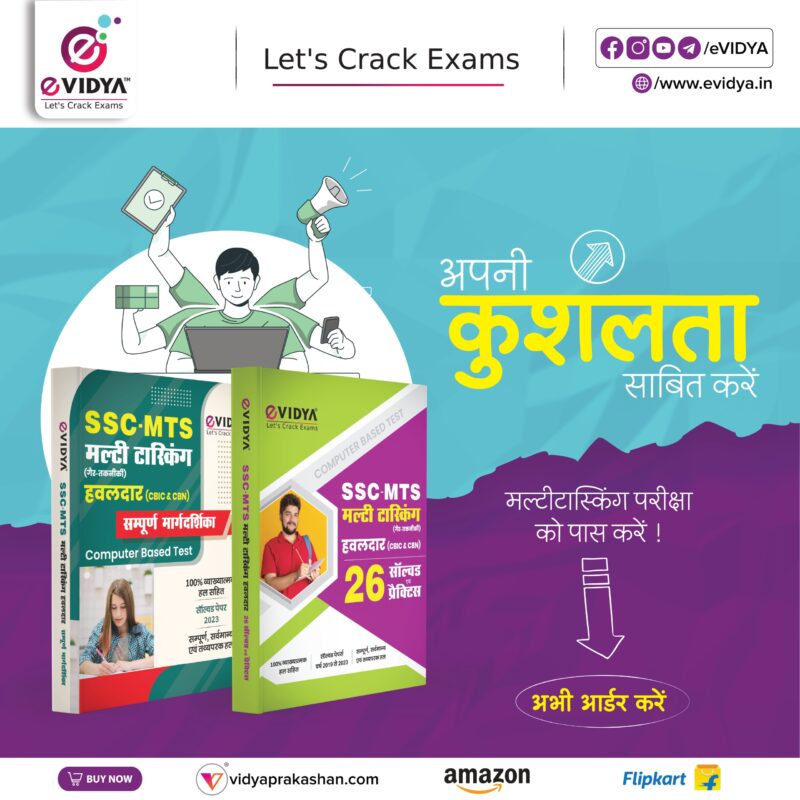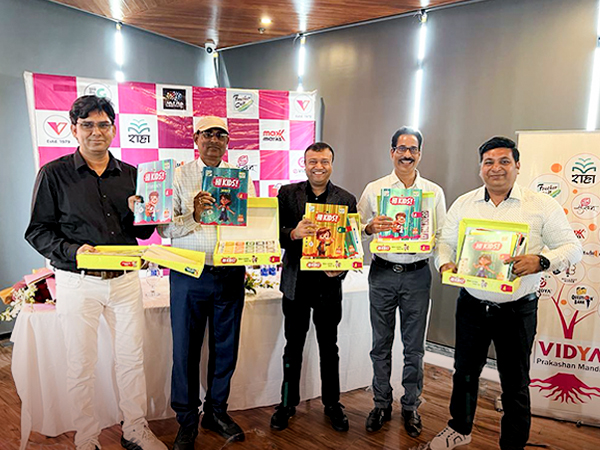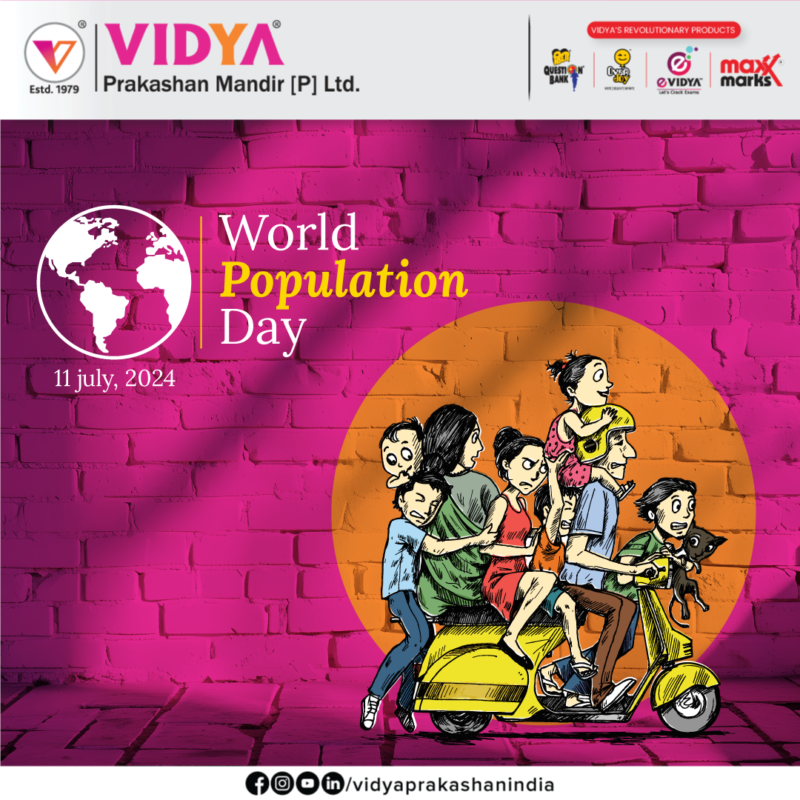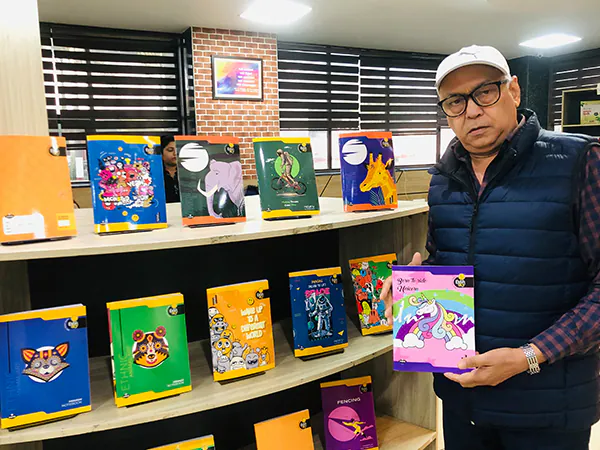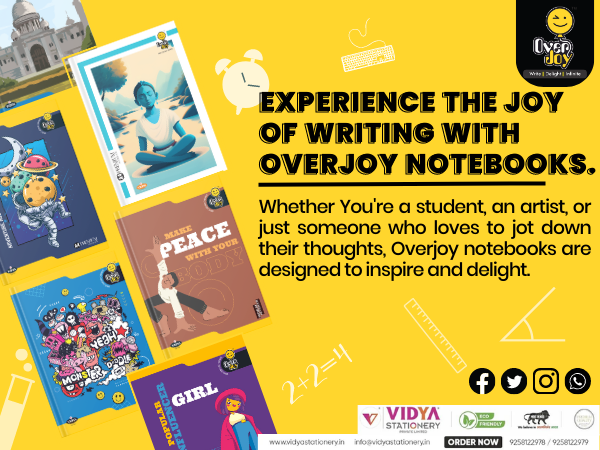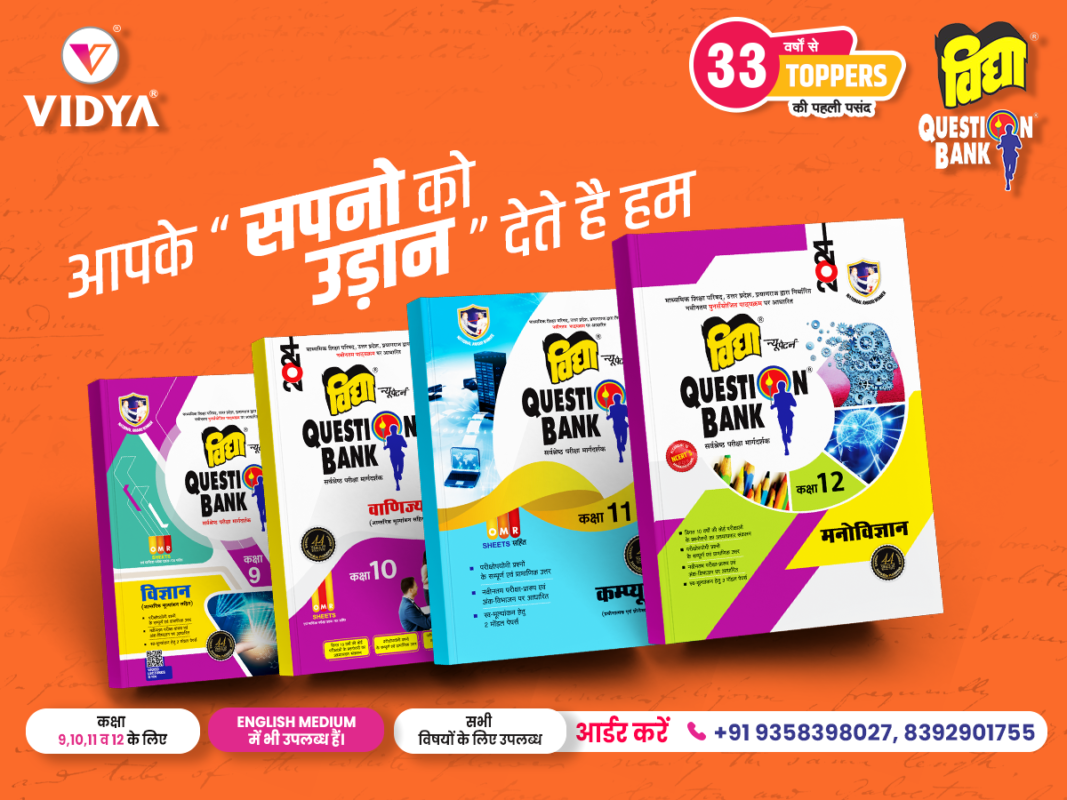केंद्रीय शिक्षक पात्रता परीक्षा (CTET) 2024
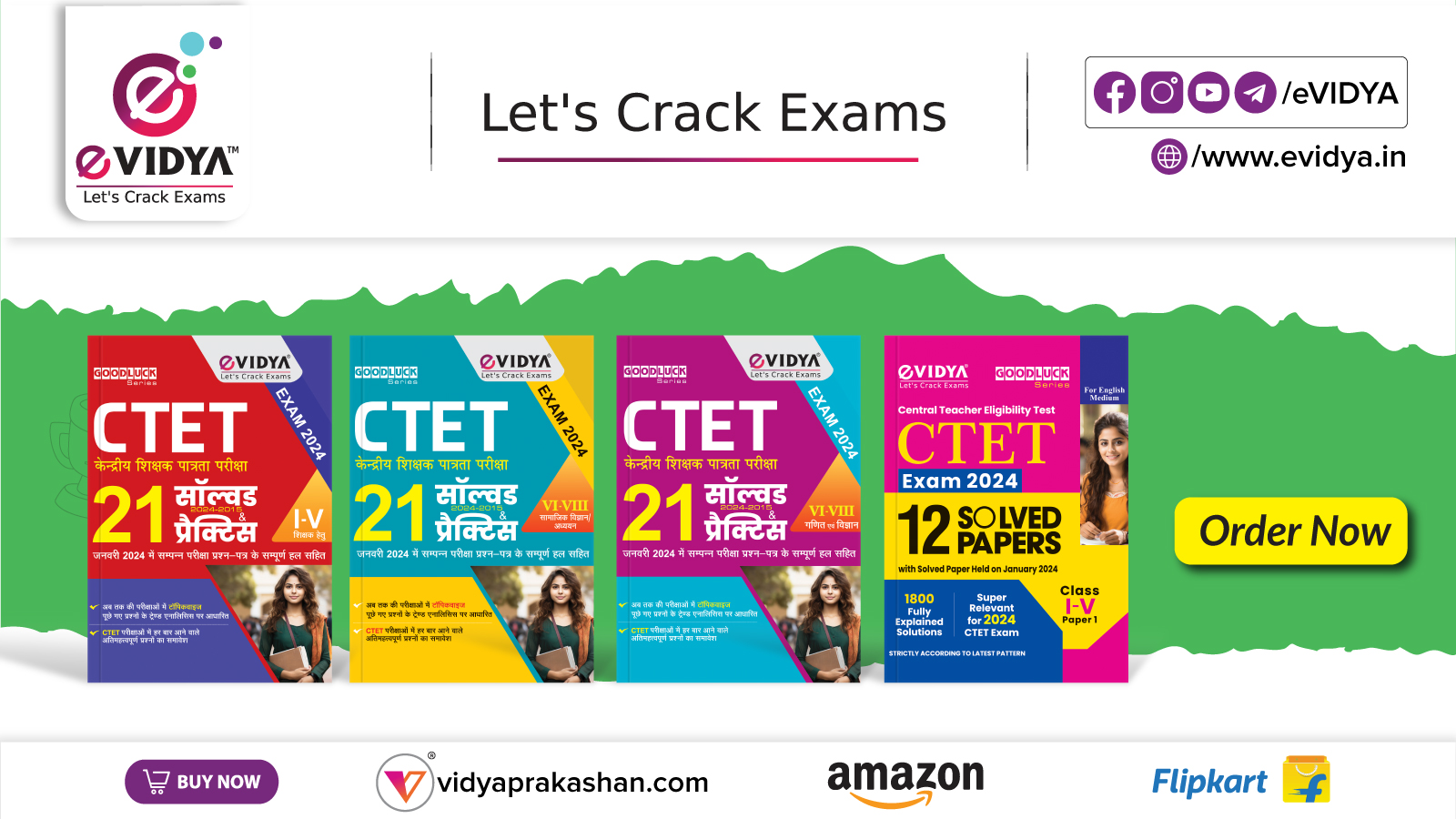
CTET एक राष्ट्रीय स्तर की शिक्षण पात्रता परीक्षा है जो हर साल केंद्रीय माध्यमिक शिक्षा बोर्ड (CBSE) द्वारा आयोजित की जाती है। जुलाई परीक्षा के लिए CTET 2024 Notification CBSE द्वारा आधिकारिक वेबसाइट पर जारी की गई है। Notification में दी गई जानकारी के मुताबिक परीक्षा 07 जुलाई 2024 को दो स्लॉट में ऑफलाइन (पेन-पेपर) मोड में आयोजित की जाएगी। परीक्षा के लिए देशभर में 211 केंद्र तय किए गए हैं।
CTET 2024 के लिए आधिकारिक वेबसाइट: ctet.nic.in
CTET क्या है?
केंद्रीय शिक्षक पात्रता परीक्षा (CTET) एक केंद्रीय-स्तरीय परीक्षा है जो उन उम्मीदवारों के लिए आयोजित कराई जाती है जो सरकारी शिक्षक बनना चाहते हैं। ये परीक्षा साल में दो बार Offline Mode में आयोजित की जाती है। परीक्षा के लिए आवेदन पत्र और फीस Online जमा की जाती है।
यह परीक्षा विभिन्न सरकारी स्कूलों में प्राथमिक और उच्च प्राथमिक शिक्षण पदों के लिए उम्मीदवारों की पात्रता निर्धारित करने के लिए आयोजित की जाती है। कई निजी स्कूलों में भी CTET प्रमाणपत्र की आवश्यकता होती है। इसलिए, निजी स्कूल या सरकारी स्कूल में शिक्षण में करियर बनाने के इच्छुक उम्मीदवारों के लिए CTET शिक्षण प्रमाणपत्र आवश्यक है।
महत्वपूर्ण तिथियाँ
- आवेदन भरने की प्रारंभ तिथि – 7 March 2024
- आवेदन भरने की अंतिम तिथि – 5 April 2024
- फीस जमा करने की अंतिम तिथि – 5 April 2024
- परीक्षा तिथि – 7 July 2024
- एडमिट कार्ड आने की तारीख – परीक्षा से ठीक पहले
- परिणाम जारी होने की तारीख – परीक्षा के तुरंत बाद सूचित किया जाएगा
आवेदन शुल्क
एक पेपर के लिए
- General / OBC – 1000/-
- SC/ST – 500/-
दोनों पेपर के लिए: प्राथमिक और माध्यमिक
- General / OBC – 1200/-
- SC/ST – 600/-
आयु सीमाएँ
- Minimum age – 18 years
- Maximum age – NA
पात्रता मापदंड
उम्मीदवारों को CTET परीक्षा देने के लिए पात्रता मानदंडों को पूरा करना होगा। उम्मीदवारों को CTET ऑनलाइन आवेदन पत्र भरने से पहले CTET 2024 पात्रता मानदंड की जांच करनी चाहिए।
- प्राथमिक स्तर के शिक्षक के रूप में योग्य होने के लिए उम्मीदवारों को न्यूनतम 50% कुल अंकों के साथ 10+2 उत्तीर्ण होना चाहिए।
- माध्यमिक शिक्षक की नियुक्ति के योग्य होने के लिए उम्मीदवारों को किसी मान्यता प्राप्त विश्वविद्यालय से न्यूनतम 50% कुल अंकों के साथ स्नातक या कम से कम 50% कुल अंकों के साथ 10+2 उत्तीर्ण होना ज़रूरी है।
- SC/ST/OBC/Differently abled जैसी आरक्षित श्रेणियों के उम्मीदवारों को अर्हक अंकों में 5% तक की छूट दी जाएगी।
- शिक्षा में स्नातक की डिग्री या प्रारंभिक शिक्षा में डिप्लोमा आदि के अंतिम वर्ष में उपस्थित होने वाले उम्मीदवारों को अनंतिम रूप से प्रवेश दिया जाता है। उनका प्रमाणपत्र परीक्षा परिणाम घोषित होने से पहले उपरोक्त परीक्षाओं में उत्तीर्ण होने पर ही मान्य होगा।
पाठ्यक्रम
Paper I (for classes 1 to V) Primary Stage
- Child Development and Pedagogy
a) Child Development (Primary School Child)
• Concept of development and its relationship with learning.
• Principles of the development of children.
• Influence of Heredity & Environment.
• Socialization processes: Social world & children (Teacher, Parents, Peers).
• Piaget, Kohlberg, and Vygotsky: constructs and critical perspectives.
• Concepts of child-centred and progressive education.
• Critical perspective of the construct of Intelligence.
• Multi-Dimensional Intelligence.
• Language & Thought .
• Gender as a social construct; gender roles, gender bias, and educational practice.
• Individual differences among learners, understanding differences based on diversity of language, caste, gender, community, religion, etc.
• Distinction between Assessment for learning and assessment of learning; School-Based Assessment, Continuous & Comprehensive Evaluation: perspective and practice.
• Formulating appropriate questions for assessing the readiness levels of learners; for enhancing learning and critical thinking in the classroom and for assessing learner achievement.
b) Concept of Inclusive education and understanding children with special needs
• Addressing learners from diverse backgrounds including disadvantaged and deprived.
• Addressing the needs of children with learning difficulties, impairment, etc.
• Addressing the Talented, Creative, Specially abled Learners.
c) Learning and Pedagogy
• How children think and learn; how and why children fail to achieve success in school performance.
• Basic processes of teaching and learning; children’s strategies of learning; learning as a social activity; social context of learning.
• Child as a problem solver and a scientific investigator.
• Alternative conceptions of learning in children, understanding children’s errors as significant steps in the learning process.
• Cognition & Emotions.
• Motivation and learning.
• Factors contributing to learning – personal & environmental.
II. Language I
a) Language Comprehension
• Reading unseen passages – two passages one prose or drama and one poem with questions on comprehension, inference, grammar, and verbal ability (Prose passage may be literary, scientific, narrative, or discursive).
b) Pedagogy of Language Development
• Learning and acquisition.
• Principles of language Teaching.
• Role of listening and speaking; function of language and how children use it as a tool.
• Critical perspective on the role of grammar in learning a language for communicating ideas verbally and in written form.
• Challenges of teaching language in a diverse classroom; language difficulties, errors, and disorders.
• Language Skills.
• Evaluating language comprehension and proficiency: speaking, listening, reading, and writing.
• Teaching- learning materials: Textbook, multi-media materials, multilingual classroom resources.
• Remedial Teaching.
III. Language -II
a) Comprehension
• Two unseen prose passages (discursive or literary or narrative or scientific) with questions on comprehension, grammar, and verbal ability.
b) Pedagogy of Language Development
• Learning and acquisition.
• Principles of language Teaching.
• Role of listening and speaking; function of language and how children use it as a tool.
• Critical perspective on the role of grammar in learning a language for communicating ideas verbally and in written form.
• Challenges of teaching language in a diverse classroom; language difficulties, errors, and disorders.
• Language Skills.
• Evaluating language comprehension and proficiency: speaking, listening, reading, and writing.
• Teaching – learning materials: Textbook, multi-media materials, multilingual resources in the classroom.
• Remedial Teaching.
IV Mathematics
a) Content
• Geometry
• Shapes & Spatial Understanding
• Solids around Us
• Numbers
• Addition and Subtraction
• Multiplication
• Division
• Measurement
• Weight
• Time
• Volume
• Data Handling
• Patterns
• Money
b) Pedagogical issues
• Nature of Mathematics/Logical thinking; understanding children’s thinking and reasoning patterns and strategies for making meaning and learning.
• Place of Mathematics in Curriculum.
• Language of Mathematics.
• Community Mathematics.
• Evaluation through formal and informal methods.
• Problems of Teaching.
• Error analysis and related aspects of learning and teaching.
• Diagnostic and Remedial Teaching.
V. Environmental Studies
a) Content
- Family and Friends: Relationships Work and Play Animals Plants
- Food
- Shelter
- Water
- Travel
- Things We Make and Do
b) Pedagogical Issues
- Concept and scope of EVS
- Significance of EVS, integrated EVS
- Environmental Studies & Environmental Education
- Learning Principles
- Scope & relation to Science & Social Science
- Approaches of presenting concepts
- Activities
- Experimentation/Practical Work
- Discussion
- CCE
- Teaching material/Aids
- Problems
- Child Development and Pedagogy
- a) Child Development (Elementary School Child)
• Concept of development and its relationship with learning.
• Principles of the development of children.
• Influence of Heredity & Environment.
• Socialization processes: Social world & children (Teacher, Parents, Peers).
• Piaget, Kohlberg, and Vygotsky: constructs and critical perspectives.
• Concepts of child-centered and progressive education.
• Critical perspective of the construct of Intelligence.
• Multi-Dimensional Intelligence.
• Language & Thought.
• Gender as a social construct; gender roles, gender bias, and educational practice.
• Individual differences among learners, understanding differences based on diversity: language, caste, gender, community, religion, etc.
• Distinction between Assessment for learning and assessment of learning; School-Based Assessment, Continuous & Comprehensive Evaluation: perspective and practice.
• Formulating appropriate questions for assessing the readiness levels of learners; for enhancing learning and critical thinking in the classroom and for assessing learner achievement.
b) Concept of Inclusive education and understanding children with special needs
• Addressing learners from diverse backgrounds including disadvantaged and deprived.
• Addressing the needs of children with learning difficulties, impairment, etc.
• Addressing the Talented, Creative, Specially abled Learners
c) Learning and Pedagogy
• How children think and learn; how and why children fail to achieve success in school performance.
• Basic processes of teaching and learning; children’s strategies of learning; learning as a social activity; social context of learning.
• Child as a problem solver and a scientific investigator.
• Alternative conceptions of learning in children, understanding children’s errors as significant steps in the learning process.
• Cognition & Emotions.
• Motivation and learning.
• Factors contributing to learning – personal & environmental.
II. Language I
a) Language Comprehension
Reading unseen passages – two passages one prose or drama and one poem with questions on comprehension, inference, grammar, and verbal ability (Prose passage may be literary, scientific, narrative, or discursive).
b) Pedagogy of Language Development
• Learning and acquisition.
• Principles of language Teaching.
• Role of listening and speaking; function of language and how children use it.
• IT as a tool.
• Critical perspective on the role of grammar in learning a language for communicating ideas verbally and in written form.
• Challenges of teaching language in a diverse classroom; language difficulties, errors, and disorders.
• Language Skills.
• Evaluating language comprehension and proficiency: speaking, listening, reading, and writing.
• Teaching- learning materials: Textbook, multi-media materials, multilingual resources in the classroom.
• Remedial Teaching.
III. Language-II
a) Comprehension
• Two unseen prose passages (discursive or literary or narrative or scientific) with questions on comprehension, grammar, and verbal ability
b) Pedagogy of Language Development
• Learning and acquisition
• Principles of language Teaching
• Role of listening and speaking; function of language and how children use it as a tool.
• Critical perspective on the role of grammar in learning a language for communicating ideas verbally and in written form.
• Challenges of teaching language in a diverse classroom; language difficulties, errors, and disorders.
• Language Skills
• Evaluating language comprehension and proficiency: speaking, listening, reading, and writing.
• Teaching – learning materials: Textbook, multi-media materials, multilingual resources of the classroom.
• Remedial Teaching
IV. Mathematics and Science
i) Mathematics
a)Content Number System
• Knowing our Numbers
• Playing with Numbers
• Whole Numbers
• Negative Numbers and Integers
• Fractions
Algebra
- Introduction to Algebra
- Ratio and Proportion
Geometry
- Basic geometrical ideas (2-D)
- Understanding Elementary Shapes (2-D and 3-D)
- Symmetry: (reflection)
- Construction (using Straight edge Scale, protractor, compasses)
- Mensuration
- Data handling
b) Pedagogical issues
• Nature of Mathematics/Logical thinking
• Place of Mathematics in Curriculum
• Language of Mathematics
• Community Mathematics
• Evaluation
• Remedial Teaching
• Problem of Teaching
ii) Science
(a) Content
1. Food
• Sources of food
• Components of food
• Cleaning food
2. Materials
• Materials of daily use
3. The World of the Living
4. Moving Things People and Ideas
5. How things work
• Electric current and circuits
• Magnets
6. Natural Phenomena
7. Natural Resources
b) Pedagogical issues
• Nature & Structure of Sciences
• Natural Science/Aims & objectives
• Understanding & Appreciating Science
• Approaches/Integrated Approach
• Observation/Experiment/Discovery (Method of Science)
• Innovation
• Text Material/Aids
• Evaluation – cognitive/psychomotor/affective
• Problems
• Remedial Teaching
V. Social Studies/Social Sciences
a) Content
1. History
• When, Where, and How
• The Earliest Societies
• The First Farmers and Herders
• The First Cities
• Early States
• New Ideas
• The First Empire
• Contacts with Distant lands
• Political Developments
• Culture and Science
• New Kings and Kingdoms
• Sultans of Delhi
• Architecture
• Creation of an Empire
• Social Change
• Regional Cultures
• The Establishment of the Company Power
• Rural Life and Society
• Colonialism and Tribal Societies
• The Revolt of 1857-58
• Women and reform
• Challenging the Caste System
• The Nationalist Movement
• India After Independence
2. Geography
• Geography as a social study and as a science
• Planet: Earth in the solar system
• Globe
• Environment in its totality: natural and human environment
• Air
• Water
• Human Environment: settlement, transport, and communication
• Resources: Types – Natural and Human
• Agriculture
3. Social and Political Life
• Diversity
• Government
• Local Government
• Making a Living
• Democracy
• State Government
• Understanding Media
• Unpacking Gender
• The Constitution
• Parliamentary Government
• The Judiciary
• Social Justice and the Marginalised
b) Pedagogical issues
• Concept & Nature of Social Science/Social Studies
• Class Room Processes, activities, and discourse
• Developing Critical thinking
• Enquiry/Empirical Evidence
• Problems of teaching Social Science/Social Studies
• Sources – Primary & Secondary
• Projects Work
• Evaluation
परीक्षा पैटर्न
CTET परीक्षा दो स्लॉट में ऑफलाइन (पेन-पेपर) मोड में आयोजित की जाएगी। जो उम्मीदवार CTET 2024 परीक्षा में शामिल हो रहे हैं, उन्हें 2024 परीक्षा के परीक्षा पैटर्न के बारे में पता होना चाहिए। CTET 2024 के दो स्लॉट पेपर-1 और पेपर-2 हैं।
पेपर-1 परीक्षा को 5 भागों में बांटा गया है।
| CTET Paper 1 Exam Pattern | |||
| Subject | No. of Questions | Marks | Duration |
| Child Development and Pedagogy | 30 | 30 | 2.5 Hours |
| Language I (compulsory) | 30 | 30 | |
| Language II (compulsory) | 30 | 30 | |
| Mathematics | 30 | 30 | |
| Environmental Studies | 30 | 30 | |
| Total | 150 | 150 | |
पेपर-2 परीक्षा को 4 भागों में बांटा गया है। उम्मीदवारों को पेपर 2 में गणित और विज्ञान और सामाजिक अध्ययन के बीच चयन करना होगा।
| CTET Paper 2 Exam Pattern | |||
| Subject | No. of Questions | Marks | Duration |
| Child Development and Pedagogy | 30 | 30 | 2.5 Hours |
| Language I (compulsory) | 30 | 30 | |
| Language II (compulsory) | 30 | 30 | |
| A. Mathematics & Science | 30+30 | 60 | |
| B. Social Studies & Social Science | 60 | 60 | |
| Total | 210 | 210 | |
ध्यान देने कि बात यह है की CTET 2024 परीक्षा में गलत उत्तर के लिए कोई अंक कटौती नहीं है यानी कोई नकारात्मक अंकन नहीं है।
परीक्षा के लिए OMR शीट से तैयारी
परीक्षा से पहले अभ्यास के लिए eVidya OMR Sheet ज़रूर लें और परीक्षा के लिए अच्छे से तयारी करें।
- उम्मीदवार OMR Sheet दिए गए समय में आसानी से भर सकते है।
- यदि उम्मीदवार नियमित रूप से OMR Sheet भरने का अभ्यास करता है, तो परीक्षा में गलती होने की संभावना कम हो जाती है।
जमा करते समय किसी भी बाधा से बचने के लिए CTET OMR Sheet को उचित रूप से भरा जाना चाहिए। OMR Sheet का अभ्यास बहुत महत्वपूर्ण है, और इसे बार-बार करने की आवश्यकता है।
आपके अग्रणी करियर के लिए अच्छे परिणाम प्राप्त करने और आपकी CTET परीक्षा की तैयारी के लिए eVidya पुस्कतें online available हैं। किताबें ऑर्डर करने के लिए ऑनलाइन लिंक नीचे दिए गए हैं।
| Books | Amazon | Flipkart |
| eVidya CTET CBT 2024 (VI-VIII) Maths & Science 23 Solved Papers & Practice Sets | https://amzn.to/4aB0hkw | https://bit.ly/3J2Ht1Y |
| eVidya CTET 21 Solved (2024-2015) & Practice Papers for Class 6 to 8 | https://bit.ly/3TLSbyR | https://bit.ly/3vOYUjs |
| eVidya CTET 21 Solved Practice Papers for Class 6 to 8 Maths&Science Entrance Exam 2024 | https://bit.ly/43OvDCm | https://bit.ly/49nHVCw |
| EVidya CTET CBT Class (1 To 5) 23 Solved & Practice Sets for CTET Exam 2024 | https://bit.ly/441uGqt | https://bit.ly/43JtJTk |
| eVidya CTET CBT (VI-VIII) Social Science & Study 23 Solved Papers & Practice Sets for CTET Entrance Exam 2024 | https://bit.ly/43Jfo9k | https://bit.ly/3vGgy9i |
| CTET-CBT 23 Solved Papers & Practice Sets (ClassVI-VIII Study & Social Science) for 2024 CTET Entrance Exam | https://bit.ly/3VKrMnx | https://bit.ly/3PQ6OjA |
| CTET Class VI to VIII Ganith avum Vigyan 23 Solved Papers & Practice Sets for CTET Entrance Exam 2024 – Free OMR Sheets for Practicing | https://bit.ly/49nexwk | https://bit.ly/43NwS4o |
More links to reach us out for any query
Our Amazon Store – https://amzn.to/3PFNp4K
Facebook – https://bit.ly/3WdWMKk
Instagram – https://bit.ly/3WdMGJ7
LinkedIn – https://www.linkedin.com/company/evidyaindia/
Telegram – https://bit.ly/3hGbc6V
Youtube – https://bit.ly/3hEki4b
eVidya Application – https://bit.ly/3HSYlJ3




